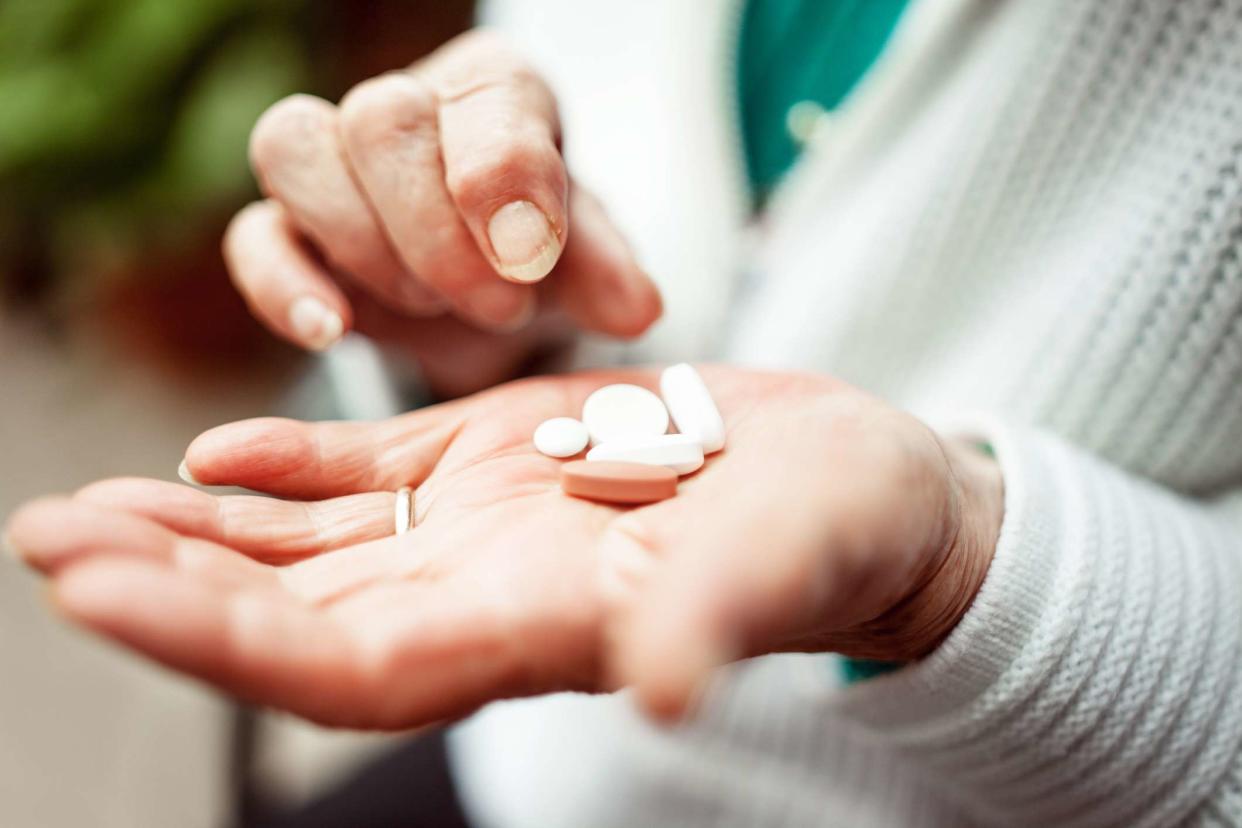What Is Serotonin Syndrome?

Serotonin syndrome happens when you have an excess of serotonin in your body. Serotonin is a chemical that naturally occurs in the body, but certain medications can cause your body to product too much serotonin. Antidepressants are a relatively common medication that work by increasing the amount of serotonin (or sometimes norepinephrine) in your brain; people with symptoms of anxiety and depression often have too little serotonin, so taking a selective serotonin reuptake inhibitor (SSRI) can help balance things out.
When serotonin reaches potentially toxic levels in the central nervous system, it’s called serotonin syndrome. Though uncommon and typically mild, serotonin syndrome can be serious or even life-threatening, so it’s important to know what causes it, what the symptoms are, and how to prevent it.
Symptoms
Clinically, this elevation of serotonin is called a “syndrome” but it may be more helpful to think of it as a range of toxicity between mild and severe; it’s not a disease or condition so much as a temporary drug reaction.
Generally speaking, most cases of serotonin syndrome involve three types of symptoms:
Altered mental status: This includes changes in mood and behavior, such as increased anxiety, agitation or irritability, and confusion.
Autonomic dysfunction: Your autonomic nervous system controls involuntary movements; dysfunction in this system may appear as increased heart rate, high blood pressure, dilated pupils, sweating, or diarrhea.
Neuromuscular excitability: Your neuromuscular system involves both muscles and nerves, so people with serotonin syndrome may have tremors, hard or rigid muscles, muscle spasms, and overactive reflexes.
If you experience serotonin syndrome, you may experience one or more of these symptom categories; they each present in 40 to 50% of reported cases, but they don’t necessarily all occur together.
What Causes Serotonin Syndrome?
Having too much serotonin in your system can cause your central nervous system to malfunction, leading to cognitive (mental), autonomic (involuntary), and muscular symptoms. It’s similar to a drug overdose, though many cases of serotonin syndrome are completely accidental. It usually happens when someone takes two drugs that increase serotonin or takes too much of one serotonin-increasing, or serotonergic, drug.
Drugs commonly involved in cases of serotonin syndrome include typical and atypical antidepressants, but also recreational drugs (like amphetamine and ecstasy), pain medications such as fentanyl, and even diet supplements like St. John’s Wort.
People of all age groups who take SSRIs are at risk for serotonin syndrome, though the risk may increase if you take multiple medications for other chronic illnesses. Experts aren’t sure how many people develop serotonin syndrome since most cases are mild and likely to be underreported.
Most people experience serotonin syndrome soon after exposure to toxic levels; anywhere from one hour to six hours is common, with virtually all people noting symptoms within the first 24 hours.
Related:Supplements That Should Not Be Mixed
How Is Serotonin Syndrome Diagnosed?
If your healthcare provider suspects you have serotonin syndrome, they will ask about your medical history, including what drugs you are taking. They will also ask you:
What dosage you’re taking of each drug
How often you take them
Whether there have been any recent changes to your medications
They will also ask about your symptoms and do a physical exam to check your heart rate and blood pressure, your reflexes, your muscle rigidity, and several other signs of health. Providers usually can’t rely on bloodwork to assess the amount of serotonin in your blood, but they may prescribe blood tests to rule out other conditions with similar symptoms.
Many providers rely on a diagnostic tool called the Hunter Criteria to confirm their diagnosis. If you take a serotonergic drug and have one or more of the following symptoms, the combination is typically enough for them to diagnose you with serotonin syndrome:
Spontaneous muscle spasms
Induced muscle spasms (during a physical examination, for example) occurring with agitation or sweating
Spasms of the eye occurring with agitation or sweating
Tremor occurring with overactive reflexes
Rigid or stiff muscles occurring with fever of 100.4 or higher and induced spasms or eye spasms
Treatments
Since serotonin syndrome is a temporary increase in serotonin toxicity, the treatment is to stop the use of whatever drug or drugs caused the increase. From there, treatment moves to managing your basic vital signs and overall health until your serotonin levels return to normal; this is also called supportive care, and how much you need depends on the degree of toxicity. The degrees include:
Mild serotonin syndrome can usually be treated with IV fluids, stabilization of heart rate, breathing, and blood pressure, and a mild sedative.
Moderate serotonin syndrome expands on this baseline of supportive care by often adding anti-nausea drugs and cooling treatments if sweating and hyperthermia, or extreme high body temperature, are an issue.
Severe serotonin syndrome usually requires full sedation and intubation to prevent complications. Providers focus on hyperthermia and muscle rigidity to avoid breathing difficulties and other side effects.
You may have to stay in the hospital for several hours or days, depending on how severe your symptoms are, but most people with serotonin syndrome improve between 24 and 72 hours after receiving treatment.
Prevention
Preventing serotonin syndrome requires educating both patients and providers about serotonergic medications. Much of this responsibility falls to the providers that prescribe SSRIs and other drugs that can increase serotonin and to the pharmacy systems designed to check for interactions before drugs are dispensed to patients.
However, there are things patients can do, as well, to limit their risk of serotonin syndrome:
Take your medications, especially any that increase serotonin, exactly as instructed.
Be aware of the symptoms of serotonin syndrome, especially when adding a new medication or changing the dosage of an existing medication.
Avoid taking recreational drugs.
Ask your doctor or pharmacist about the safety of taking OTC medications or dietary supplements with any prescription drugs you regularly take.
For more Health news, make sure to sign up for our newsletter!
Read the original article on Health.

